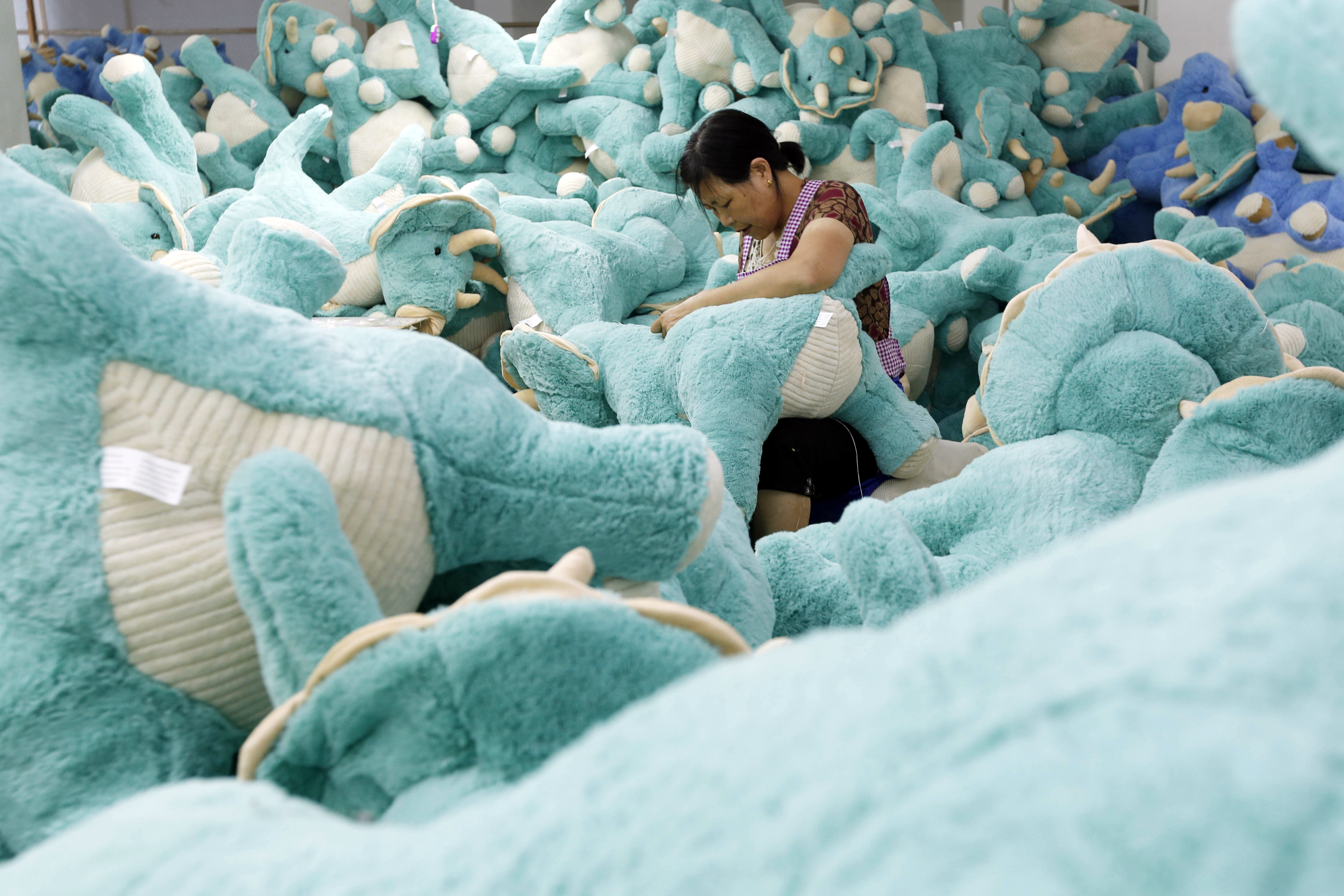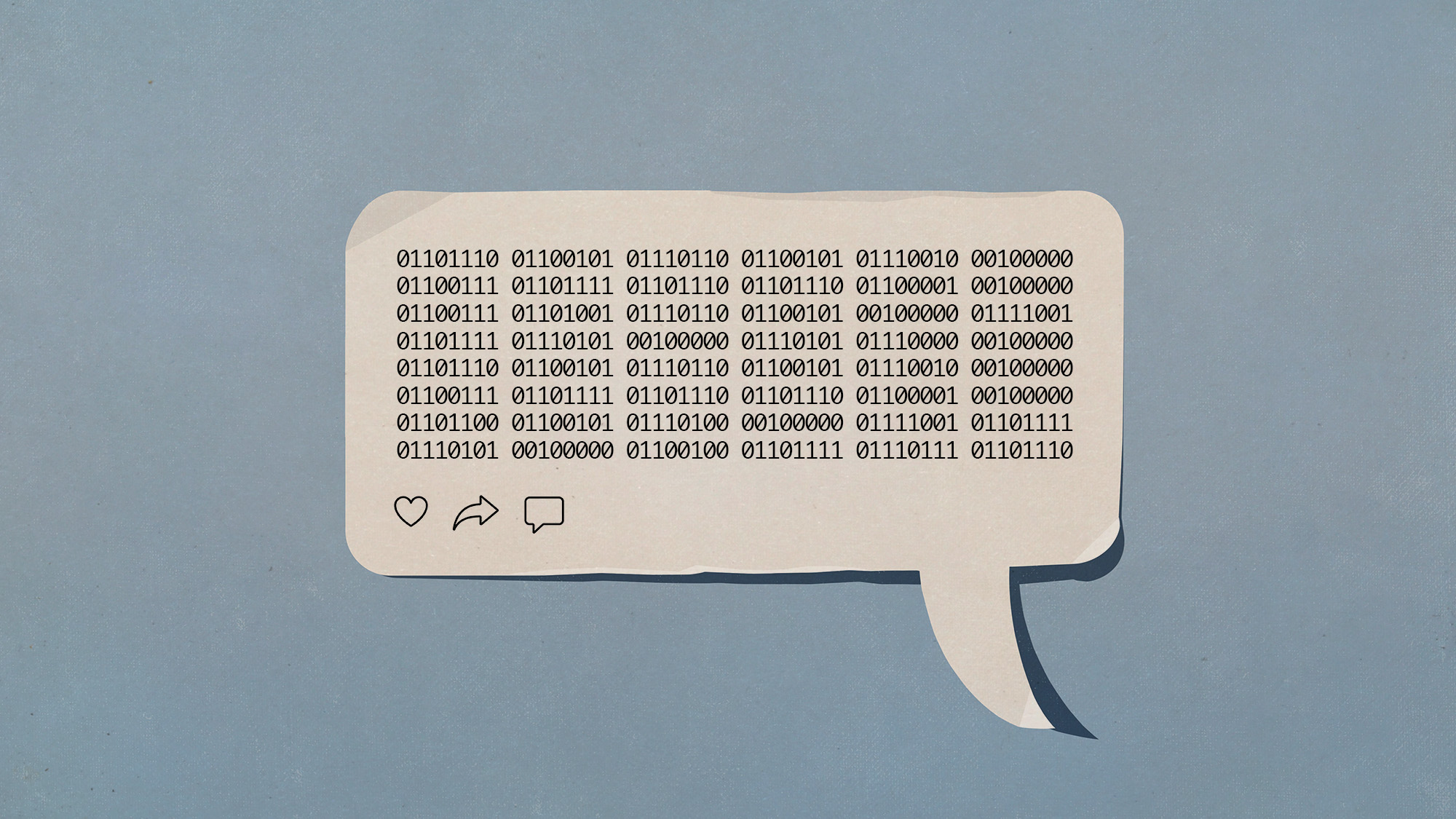Is America's trade deficit good for Chinese workers? The answer may surprise you.
Most everyone now acknowledges it has been a bad deal for American workers. But what if it has also been a bad deal for Chinese workers?


America's trade balance with China is way out of whack. Our trade deficit with them — and their mirroring trade surplus with us — began in the early 1990s and has exploded since. By 2014, it had reached $342.6 billion. Most everyone now acknowledges this has been a bad deal for American workers.
But what if it has also been a bad deal for Chinese workers?
Donald Trump, who repeatedly insists the China is laughing at us while ripping us off, certainly seems to think it's been great for the average Chinese laborer. And interestingly, some liberal pundits make the same argument, though they cast it as a morally necessary sacrifice by American workers on behalf of the global poor.
The Week
Escape your echo chamber. Get the facts behind the news, plus analysis from multiple perspectives.

Sign up for The Week's Free Newsletters
From our morning news briefing to a weekly Good News Newsletter, get the best of The Week delivered directly to your inbox.
From our morning news briefing to a weekly Good News Newsletter, get the best of The Week delivered directly to your inbox.
None of them are right.
Let's start with what the China-U.S. trade imbalance means in concrete terms: By purchasing the goods and services Chinese workers produce, American consumers are helping create jobs in China. But since Chinese consumers purchase fewer American goods and services, a far smaller amount of China's aggregate demand goes in the opposite direction to create jobs in the U.S.
Now, what if American demand wasn't pouring into China? Would Chinese workers be jobless and mired in poverty? Not necessarily. Countries that must aggressively promote trade surpluses do so because their domestic populations are small. To say this is not a problem for China is a vertiginous understatement: Its population is almost 1.4 billion.
Nor is China some sort of underdeveloped backwater in terms of its productive capacities. Their tech sector rivals Silicon Valley, and the technical quality of their education is among the best in the world. (They build our iPhones for crying out loud!) So, while China remains a poor country on a per person basis, they could engage in an enormous amount of wealth creation simply by buying and selling within their own borders.
A free daily email with the biggest news stories of the day – and the best features from TheWeek.com
This begins to get at the nub of the problem: China is now "one of the most unequal countries in the world," according to the IMF. And that inequality has been on a steep rise for a while now. The money that the average Chinese worker needs to drive up demand in China's domestic market isn't getting to them. It's going right to the top.
Furthermore, China not only runs a trade surplus with America; it runs one with the entire world. Not only are they shipping more goods and services to America than they're getting back, they're shipping more to the whole planet than they're getting back. In other words, China is building up its goods and services more slowly than if it didn't trade with other countries, period.
This is exactly the reverse of what a developing country should be doing. Ultimately, the way a country raises its living standards is by increasing the quantity and quality of goods and services available within its own borders: Cars and machines and medicine and legal services and architectural drafting and canned goods and iPhones are what lengthen lifespans, improve health, provide entertainment, and so forth. Money just gives people access to these things.
So China ought to be at least running balanced trade so they get back just as much stuff as they sell. Ideally, they should run a trade deficit, and thus pull in even more goods and services than they make on their own. Trade surpluses only make sense for countries that are already rich on a per person basis and thus have the extra wealth to spare.
Instead, Chinese corporations — often owned by the Chinese government — are just stockpiling foreign currencies, which they get in exchange for selling the world those extra goods and services. They do that by plowing that money into purchases of government debt, corporate bonds, stocks, and other financial instruments, most of which are denominated in U.S. dollars. When news reports discuss China's massive dollar reserves, this is what they're talking about. And the distribution of that stockpile is just as wildly unequal as that of China's incomes: One percent of China's citizens control one-third of the country's wealth, which is about as bad as it is in America itself.
This arrangement clearly doesn't benefit the average Chinese worker in the slightest. But it clearly does benefit China's wealthy rentier class: the people who run businesses, own lots of assets, and trade on international financial markets.
And it's no coincidence that these people often make up the upper echelons of the Communist Party. China's ruling elites want to hang on to as much power and wealth as they can, while simultaneously raising living standards just fast enough to hold off political revolt. Heavy reliance on a trade surplus is the strategy they have used to thread that needle, since it effectively exports the country's unemployment problem. They've relied on demand from our shores to provide jobs for their citizens, rather than distributing incomes and assets more fairly within their own borders to generate aggregate demand.
So our trade deficit with China — and China's trade surplus with us — isn't an instance of Chinese workers pulling a fast one on American workers. Nor is it an instance of American workers sacrificing to lift Chinese workers up. It's more like a mutually poisonous co-dependent relationship: One where workers in both countries get screwed, and the elites make out like bandits.
Jeff Spross was the economics and business correspondent at TheWeek.com. He was previously a reporter at ThinkProgress.
-
 The pros and cons of noncompete agreements
The pros and cons of noncompete agreementsThe Explainer The FTC wants to ban companies from binding their employees with noncompete agreements. Who would this benefit, and who would it hurt?
-
 What experts are saying about the economy's surprise contraction
What experts are saying about the economy's surprise contractionThe Explainer The sharpest opinions on the debate from around the web
-
 The death of cities was greatly exaggerated
The death of cities was greatly exaggeratedThe Explainer Why the pandemic predictions about urban flight were wrong
-
 The housing crisis is here
The housing crisis is hereThe Explainer As the pandemic takes its toll, renters face eviction even as buyers are bidding higher
-
 How to be an ally to marginalized coworkers
How to be an ally to marginalized coworkersThe Explainer Show up for your colleagues by showing that you see them and their struggles
-
 What the stock market knows
What the stock market knowsThe Explainer Publicly traded companies are going to wallop small businesses
-
 Can the government save small businesses?
Can the government save small businesses?The Explainer Many are fighting for a fair share of the coronavirus rescue package
-
 How the oil crash could turn into a much bigger economic shock
How the oil crash could turn into a much bigger economic shockThe Explainer This could be a huge problem for the entire economy



